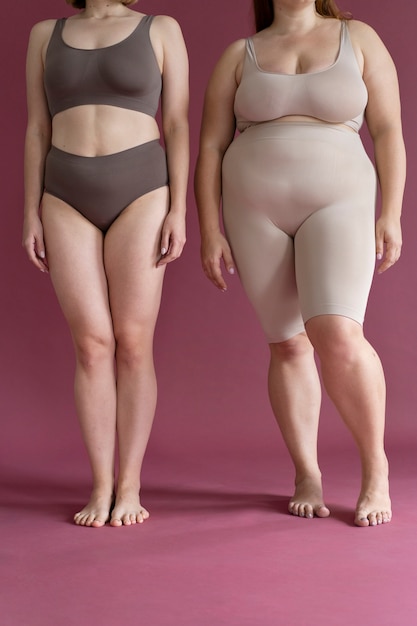
If you’re trying to lose weight, you might think it’s all about counting calories and eating less, right? Not quite, according to Terry Fairclough, a well-known personal trainer and co-founder of Your Body Programme.
In my experience as a personal trainer, I’ve heard all sorts of opinions and questions about the best diet for weight loss. Should we be counting calories? How many should we eat? Is a low fat, low carb, or high protein diet the way to go? Or maybe fasting? Then there’s the advice about having three small, regular meals each day.
While these questions are common and all these methods have their place depending on your body type, goals, and activity level, there’s one thing you definitely shouldn’t do: under-eat.
We’ve all seen that person who starts drastically cutting calories to get ready for summer – and sure, the weight might drop off quickly. But this isn’t necessarily a good thing. A calorie deficit can lead to weight loss, but not always to fat loss, which is usually what people aim for.
The typical Western diet today is often much larger than necessary, so it might be a good idea for some to cut back a bit. However, many people trying to lose weight think that the only way is to under-eat, and that’s just not true.
When we eat, our body breaks down carbohydrates into glucose, which fuels our cells. If we don’t use this glucose for energy right away, it’s stored in our muscles and liver as glycogen, which includes water. If we cut calories drastically, we lose this stored glycogen and water, not fat.
Our bodies can panic in response to long-term calorie deficits, holding on to fat and breaking down protein instead. Protein is highly active biologically, meaning the more muscle we have, the more fat we burn at rest. So, it’s important to eat enough calories encompassing fats, carbs, and protein.
Contrary to what many believe, we do need some fat in our diets. Fat is a crucial and prolonged energy source, providing more than twice the energy per gram compared to carbohydrates or protein. It’s also stored within our muscle fibers, making it readily accessible during exercise. Removing fat from your diet entirely can leave you without enough energy to stay active and burn fat.
Cutting calories too much can cause nutrient deficiencies, affecting our health dramatically. This can impact key systems like the immune, liver, and digestive systems, potentially leading to conditions such as fatigue, malnutrition, osteoporosis, anemia, and various hormone-related issues.
Extreme calorie deficits stress the body, leading to increased cortisol levels, a hormone that can initially cause weight loss but eventually leads to keeping fat. High cortisol can slow your metabolism and increase fat accumulation, especially around the belly, and interfere with thyroid function, which can make weight loss even harder.
Under-eating also affects digestion and nutrient absorption, harming overall health and making effective training and weight loss difficult. Poor sleep from low blood sugar can compound these issues by affecting liver function, immunity, and productivity.
Bodybuilders may cut calories to get lean for competitions but often increase their intake afterward. Many risk illness if not done correctly. Continuous calorie cutting can lead to a point where reducing intake further is impossible and basic bodily functions start failing, leading the body to store fat more efficiently during any slight increase in calorie intake.
The key takeaway is to eat the proper amount of calories, and balanced amounts of carbs, fats, and proteins tailored to your specific needs based on your body type, goals, activity level, and other personal factors. Tools like the Your Body Programme can help you determine your calorie needs.
Ultimately, the goal should be to nourish your body properly, keeping your metabolism active. Eating more, particularly the right nutrients, can actually help you lose fat. Focus on lean proteins from sources like lean beef, chicken, eggs, fish, as well as plant-based proteins if you’re vegan. Include healthy carbohydrates like fruits, vegetables, sweet potatoes, quinoa, and whole grains, alongside healthy fats from avocados, nuts, seeds, and olives.
Terry Fairclough, co-founder of Your Body Programme, is dedicated to writing and sharing insights about maintaining a healthy diet and effective training. By ensuring you eat a balanced diet and maintain a good calorie intake, you can support your overall health and fitness goals.